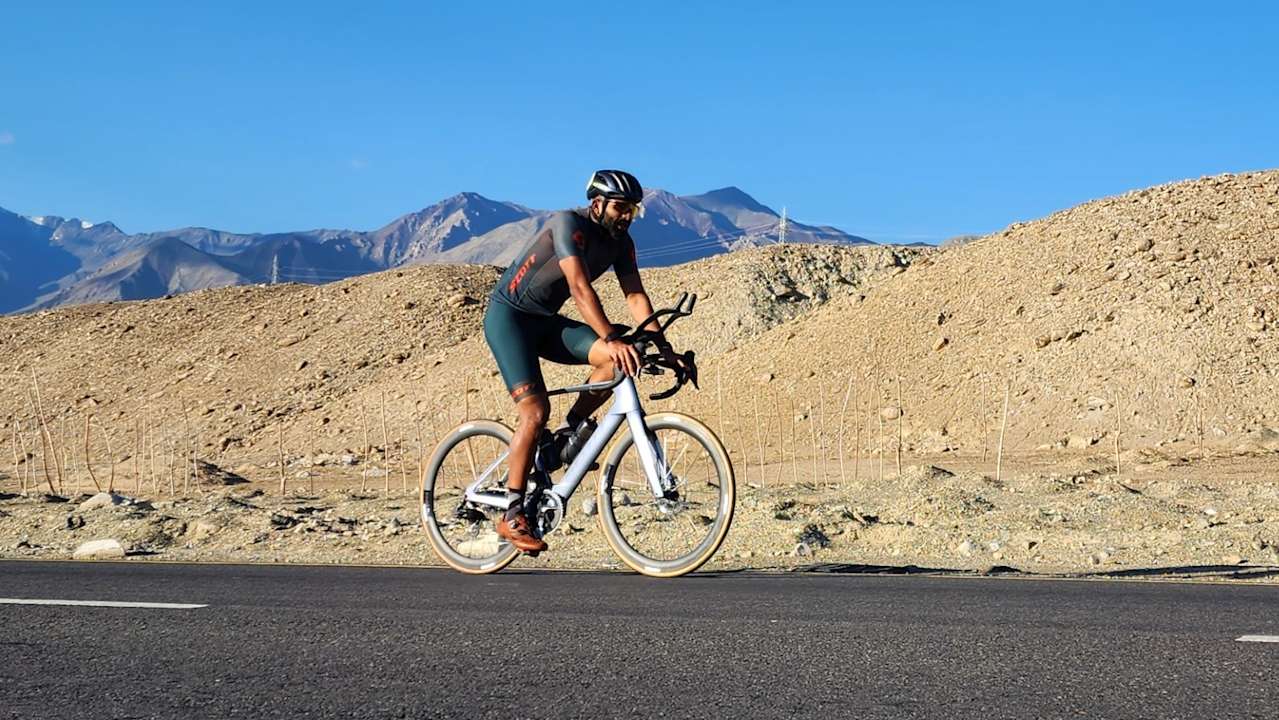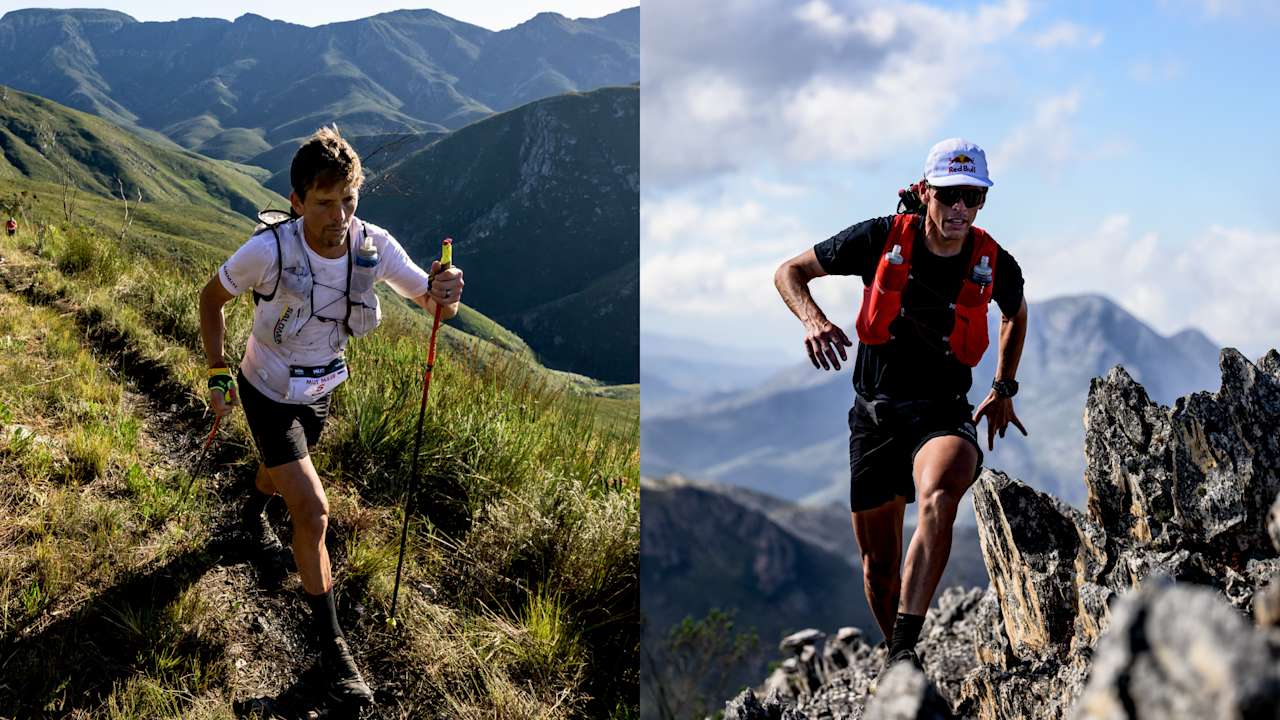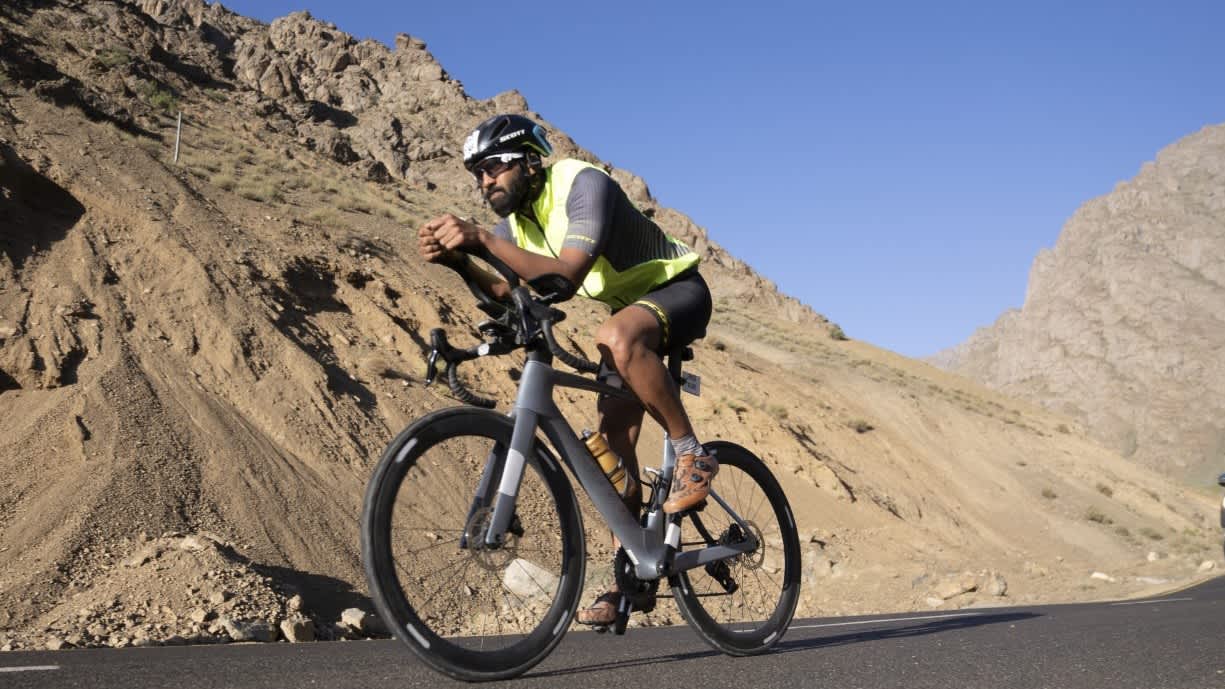Words by Natasha Dangoor, ITV News Producer
Tara Dower just broke the speed record on the 2,200-mile Appalachian Trail that crosses 14 American states.
Aaron Robinson ran 365 marathons in 365 days.
Jasmine Paris became the first woman to complete the 100-mile Barkley Marathon – with double the elevation of Everest – in less than 60 hours.
Ultra endurance sports have become more accessible than ever, with specialised coaching and kit becoming mainstream, and more popular than ever, with the influence of social media.
But how much is too much? When did running regular marathons become the norm, and ultra marathons become the challenge?
ITV News investigates the psychology of ultra-endurance sports, what drives people to push their bodies to extremes and the delirious mental state that some athletes experience as a consequence.
Testing the limits
More people are running marathons than ever before.
The record for the number of applications for the TCS London Marathon was broken this year as 840,000 people entered the ballot, compared to 580,000 the previous year- an increase of 45%.
And, as running 26 miles becomes more mainstream, amateur athletes are now taking on even more extreme feats.
Runners, cyclists, swimmers and skiers are travelling far and wide to compete in some of the most gruelling endurance races across mountains, deserts, jungles and oceans.
Kabir Rachure was the only person to complete the Great Himalayan ultra-cycling race this year, covering 560 miles with 43,000 feet of elevation in under 38 hours.
Rachure, who has also completed the 3,000-mile Race Across America three times, explained that the high elevation in the Himalayas means that oxygen levels are as low as 50%, making the climbs especially tough.
“You just have to keep your head down and pedal,” Rachure said. “Even if you go slowly, you just have to keep moving.”

“It’s in my DNA to compete with other racers,” said Rachure. “I have done 22 ultra races. I like to test my own body. And I still have big goals to be a lot faster.”
In 2013, long-distance runner Ryan Sandes became first person to win an ultra-race on every continent, including the Amazon, Antarctica and the Alps.
“Ultra running is my form of mediation, of escaping reality,” he said. “The day I wake up and don’t feel challenged is the day I’ll stop.”

Damian Hall, a record-breaking ultramarathon runner who represented GB in the sport aged 40, said: “I might cry, I might be full of fear and doubt, but the moments of euphoria are unparalleled.”
“Some of my best friends are ones who I met during races,” he added.
After Hall had run many marathons (including one dressed as a toilet), he was looking for his next challenge. He started running 100- and 200-mile races, and even reached 630 miles in 2016. His training now involves running over 70 miles per week.
“I want people to know that ultra running is much more accessible than people realise. The atmosphere is so welcoming, I love the camaraderie of being with other runners – and the terrain can be much better than roads.”
Speaking about the gruelling mental and physical challenge, Hall said by the second night of one of his ultra races he began hallucinating, seeing giant inflatable sharks and penguins.
“When you see that, you need some sleep,” he said. “But that’s the intrigue of the sport.”

Sleep deprivation is one of the major causes of hallucinations and trances.
“The brain uses one fifth of your calories so if you don’t have enough, your brain functions differently and can give you interesting perceptual experiences and trance-like states,” explains sports psychologist Dr Victor Thompson.
He advises athletes to check in with themselves every 15-20 minutes to make sure that they aren’t switching off mentally and entering a risky state.
Dr Danielle Adams Norenberg, Head of Psychology at the UK Sports Institute, helps athletes with strategy and race plans to carry them through the course of the event and avoid total fatigue.
“Endurance races can be so long and gruelling that messages of pain become confusing. Decisions such as whether to carry on or take a rest become harder because of the physical and mental fatigue, and that’s when athletes can become unsafe and even hallucinate,” she said.
“It’s important for athletes to incorporate discipline in their race strategy: to break the race down into mini goals but also allow time and space to switch off at points,” she added.
The driving force
We know that many athletes who compete in ultra endurance events are highly-driven individuals, but is there also an evolutionary psychology behind why they take on these feats?
It is hard to argue against the fact that, in the modern age, we all try to make our lives as easy as possible. Of course, this is not the case for everyone, but it does mean that many of us aren’t necessarily being physically pushed or challenged.
We no longer explore and problem solve in the outdoors as our ancestors would, unless we consciously make an effort to do so.

Adventurer psychologist Paula Reid, who skied to the South Pole in 2012-13, said “I believe we have a big primal urge to go back to when we were hunter gatherers and rewild ourselves.”
“Ultra endurance running, for example, is a way of reconnecting with our ancestors – or even our inner child – as we are constricted to modern life.”
“Even things like wild swimming, fasting and interval training, which are all rising in popularity, are ways of doing that,” said Reid.
The word ‘endurance’ itself derives from the Latin ‘indurare’, meaning ‘to make hard’, and so the very essence of endurance sports is arguably to make oneself suffer.
By learning about how to push ourselves and how to tolerate pain, we are living out the origins of the human experience.
Speaking of our innate drive to go on adventures and seek challenges, Dr Thompson said: “Our brains are simply a by-product of human history.”
But how far is too far?
Whilst exercise can release endorphins and dopamine, leaving us with a warm and fuzzy feeling, obsessive exercising can lead to addiction.
“People are motivated and self-determined, but this is a risk when they can’t back off,” Dr Thompson explained. “They adopt a ‘some is good, more is better’ attitude.”
“Your friends give you compliments, saying you look fitter, or give you Kudos on Strava, and you slowly become addicted,” he said.
With the influence of social media and commercial marketing of trendy running gear (think carbon-plated Nike’s, Salomon running vests and Shokz headphones), it’s easier than ever to be unhealthily influenced.

On the flip side, some argue that the influence of social media is generating more interest in ultra sports, encouraging people to push themselves and take on new challenges.
American ultra-runner David Kilgore said: “I believe the commercialisation is great as it is bringing more money and fans to the sport while still allowing the purest to not go down the commercialised route if they want to keep it more raw and the dirt bag spirit alive.”
Reid added: “Ultimately, you don’t need a running number and a medal to push your body harder. Farmers and fishermen are practically doing a marathon every day.”
Follow STV News on WhatsApp
Scan the QR code on your mobile device for all the latest news from around the country
























